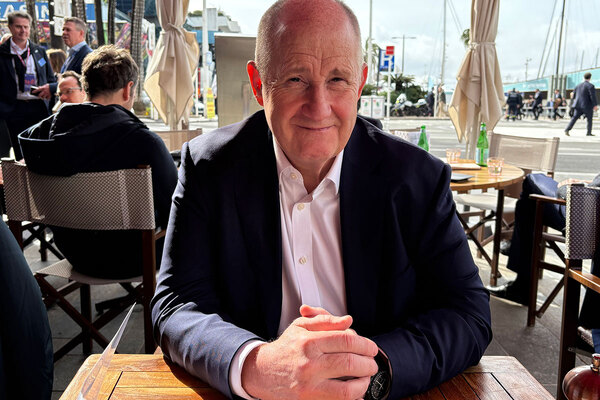Housing should be the government’s mission
As part of the #PlanForHousing campaign, Kate Markey, chief executive of the Nationwide Foundation, sets out why the government should adopt a cross-party approach to solve the housing crisis
Bold ambition drives a nation’s confidence. In June, ahead of the general election, Labour launched its plan of action to rebuild Britain under five missions. These are:
- Kick-start economic growth
- Make Britain a clean energy superpower
- Take back our streets,
- Break down barriers to opportunity
- Build an NHS fit for the future
The Institute for Government thinktank provides a sound articulation of when a government adopts the mission approach. It said: “Missions differ from normal targets in a few ways. First, a mission deals with a long-term and complex issue. They are set objectives to deal with a big issue.
“Second, a mission sets what the government wants to achieve as a result, rather than the means to do so.
“Where government may usually set out things like spending, policy and key stakeholders in achieving its goals, a mission focuses on the outcome. In theory, this allows for a more innovative and flexible approach to the mission.”
So bold, ambitious and outcomes-based strategies are needed to fix entrenched and complex issues. But currently a stark omission?
If you accept the institute’s expert description, it is staggering that housing doesn’t feature as a government mission. Without decent, affordable and healthy homes, families’ livelihoods (and life chances) are crippled, our nation’s health and social care – not to mention productivity – are strangled and our communities’ well-being blighted.
Put simply, a good housing system is, and should be, a fundamental driver of our economy and nation’s well-being.
Without doubt, the new Labour government is committed to tackling the crisis. The significant commitments to date are hugely welcomed: renters’ reforms, planning overhauls, bold targets, reform of Right to Buy and leasehold to name a few. Yet, the challenge comes in the implementation. Without defining what success looks like, how does the government know and avoid the series of unintended consequences of policy decisions which have compounded our housing crisis year after year?
“The predicted two-term, 10-year approach is welcome, but how do we future-proof solving the crisis?”
There are growing echoes from different voices in the housing space – housing associations, funders, investors and representative bodies. The message is clear and has, in part, been heard. We need a long-term housing strategy.
In spring 2025, we can expect the government’s self-titled long-term housing strategy. The predicted two-term, 10-year approach is welcome, but how do we future-proof (read 25 to 30 years) solving the crisis?
In April this year, Homes for All was launched – a long-term vision for fixing the housing crisis together with a roadmap and a key recommendation on how the vision could be governed. It began as a partnership between the Nationwide Foundation and the Church of England, and was developed in coalition alongside leading academics, major housing organisations and politicians.
Our purpose with Homes for All was not to provide a detailed step-by-step policy guide for government. Rather it was to articulate the necessary outcomes to reassure both the government and the nation that efforts to fix our housing system are working. Twenty-five outcomes are a lot, but then our housing system is complex.
Helpfully, we designed them into four clear categories:
- Better homes
- An effective housing market
- Better systems
- Better policy and policymaking
Underneath each category, Homes for All – founded on the voices of housing providers, academics, campaign groups and tenant bodies – envisions what good should look like.
For example, an effective housing system would provide enough homes to meet needs today and tomorrow; ensure homes meet needs related to ageing and physical infirmity; allow communities to play a key role in design and development; support a high-quality private rented sector that gives tenants security, while ensuring ownership is accessible to those who want to own a home. Finally, and importantly with a staggering 151,000 children currently living in it, temporary accommodation would be a rare and brief last resort.
“A good housing system could and should be the cornerstone of the economy, but it also means the kind of long-term investment where outcomes will not be felt for years to come”
Critically, Homes for All calls for an independent governance committee to support and scrutinise the government’s progress on tackling the housing crisis. We took inspiration from the Climate Change Committee, an independent cross-sector governance structure that holds the government to account on its measures to meet the environmental emergency.
Are we not in a housing emergency? Such a committee will not slow the momentum of the government’s ambitions. On the contrary, it doesn’t need to be established immediately and, with the right membership, can scrutinise but also support the government’s vision. Nobody working in housing underestimates the challenge.
A good housing system could and should be the cornerstone of the economy, but it also means the kind of long-term investment where outcomes will not be felt for years to come. An expert and independent committee would know this all too well and offer a voice of informed reason, endorsement and strength.
As many mission-led plans have proved, expert oversight, coupled with the right governance, can be the difference between success and failure. At the Nationwide Foundation, we are commissioning research on comparing how other countries have failed and succeeded on their housing journey.
This is a once-in-decades chance to get it right. As such, it is a massive opportunity for the government to demonstrate change now and lock in a cross-party vision and how to achieve it, beyond the short-term. Housing deserves a home beyond the political cycle.
Kate Markey, chief executive, Nationwide Foundation
Sign up for our daily newsletter
Already have an account? Click here to manage your newsletters













